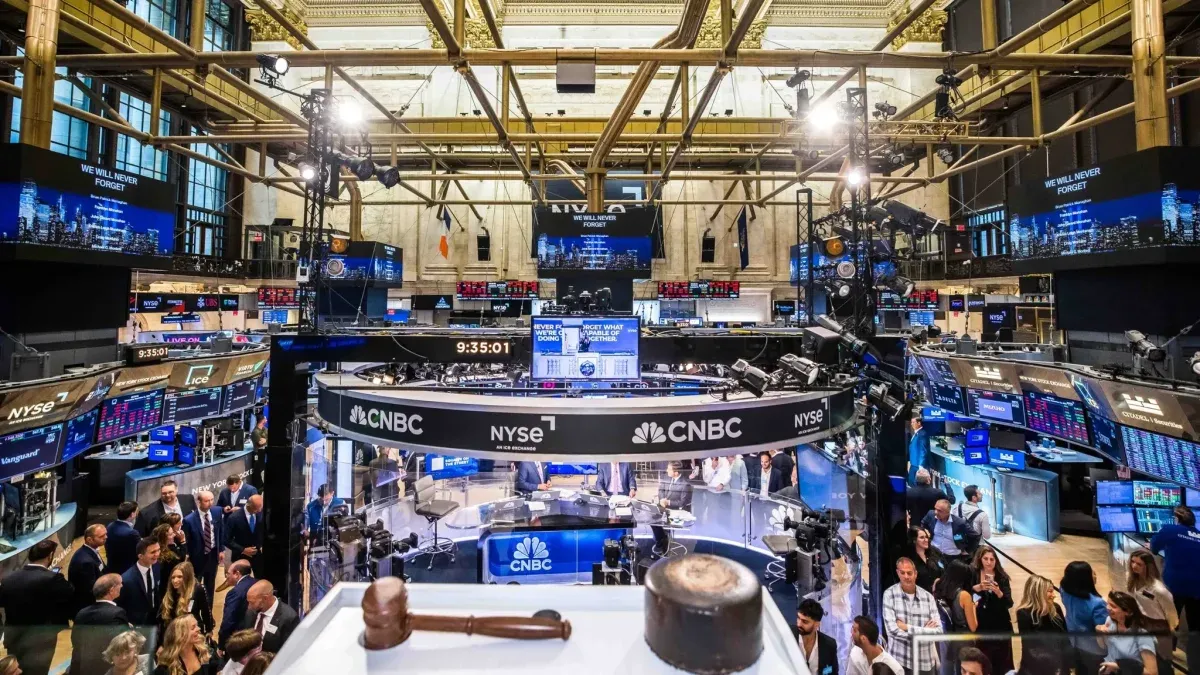Specific, The BCRA ordered that as of November 1, the inputs imported to be used in the production of goods in the country may be paid at the port of origin. (they will no longer have to wait for them to enter Argentina) “For up to the amount equivalent to the average (monthly) of the value of the total imports that were made in the last twelve months”. Official sources consulted by this newspaper specified that this cap will be defined according to what each company has brought to the country during the last year, that is, it will be defined “for each CUIT.” “The idea is that they can import the same as they were importing,” they synthesized.
In a statement, the monetary authority considered that the new measure “allows maintaining the flow of inputs required by economic activity, giving predictability to the demand for foreign currency and guaranteeing the stability of the payment market.”
The entity also decided to maintain until November 30 the suspension of the exception in the ceiling for the advance payment of capital goods established at the beginning of October. As of December 1, the advance payment of this type of goods will be enabled for up to 30% of the value of the total goods to be imported and when the set of advance payments of the firm does not exceed 80% of the total value of the goods to be imported.
The decision came after talks between the Central officials and the companies. Last Tuesday, the president of the Central, Mieguel Pesce, and the vice president, Sergio Woyecheszen, met with the leadership of the Argentine Industrial Union (UIA) to discuss the impact of this measure and other issues. As this newspaper advanced, from that meeting the monetary authority began to review the limit on the advance payment of imports and began a work table with sector chambers to evaluate particular situations. Woyecheszen met with ADIMRA (metallurgy), ENAC (SMEs), AFAC (auto parts) and UIPBA (Buenos Aires industrialists).
One of the businessmen who participated in the meetings told Ámbito that he agrees with the new measure. “It is what we ask of you. It solves 80% of the problems of SMEs “, he expressed. Small and medium-sized firms, he pointed out, were more affected by the limit to the advance payment of purchases abroad since, due to the complications in the international logistics chain generated by the pandemic, many suppliers ask to cancel the entire order to start production and guarantee the shipment of the merchandise necessary to produce locally, and SMEs do not have the possibility of resorting to other mechanisms to obtain supplies, such as those carried out by multinationals through subsidiaries in other countries. That had sparked public complaints from some companies.
In meetings, the officials promised their interlocutors to remove restrictions “without altering the purpose of guaranteeing the stability of the exchange market.” and they suggested that the idea was that companies do not speculate with a “stockeo” that affects reserves and that canceled imports are not much higher than what firms need to produce.
Two of the businessmen who attended the meetings acknowledged that there are some operators who speculate on the exchange rate gap and seek to take advantage of the current official exchange rate to cancel imports that are going to consume much later, and that this affects international reserves . In the Central, for example, they registered that in September merchandise entered for US $ 5,500 million but payments were made for about US $ 6,000 million. “They pay just for sinners,” said one of the businessmen consulted.
The truth is that the restrictions imposed during October allowed the Central to reverse its performance in foreign exchange intervention. After nine months of currency recovery, driven by the commodity price boom and the demand for hoarding, in September the BCRA had a selling balance of US $ 957 million in the wholesale market: due to the unfavorable seasonality due to the end of the thick harvest added the jump in the advance of imports. In October he accumulated purchases for more than US $ 500 million in the absence of only one wheel to close the month. That respite in the reserves is the one that now gave a certain air to relax.
David William is a talented author who has made a name for himself in the world of writing. He is a professional author who writes on a wide range of topics, from general interest to opinion news. David is currently working as a writer at 24 hours worlds where he brings his unique perspective and in-depth research to his articles, making them both informative and engaging.




